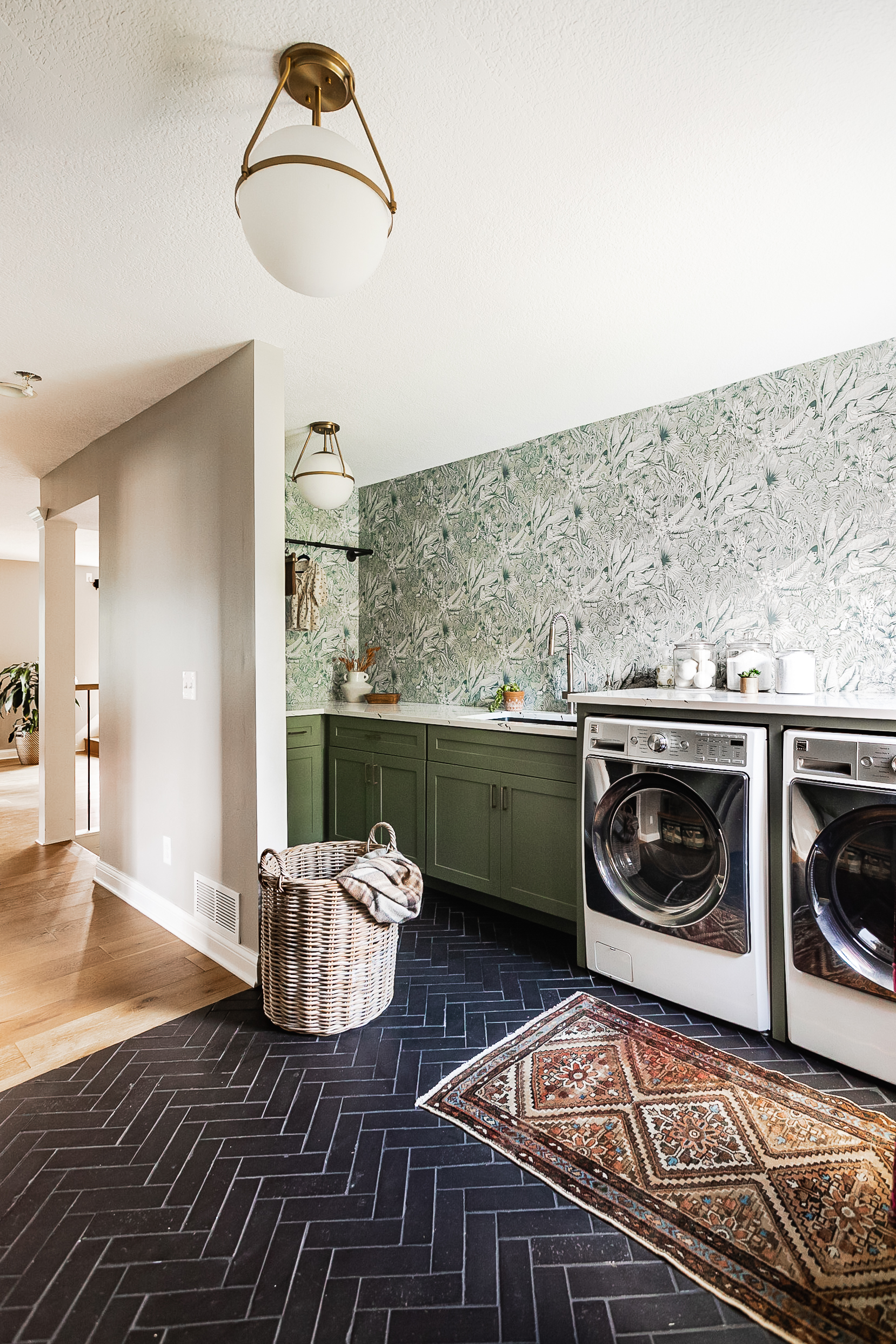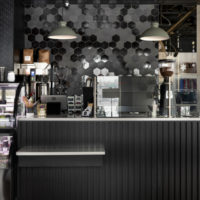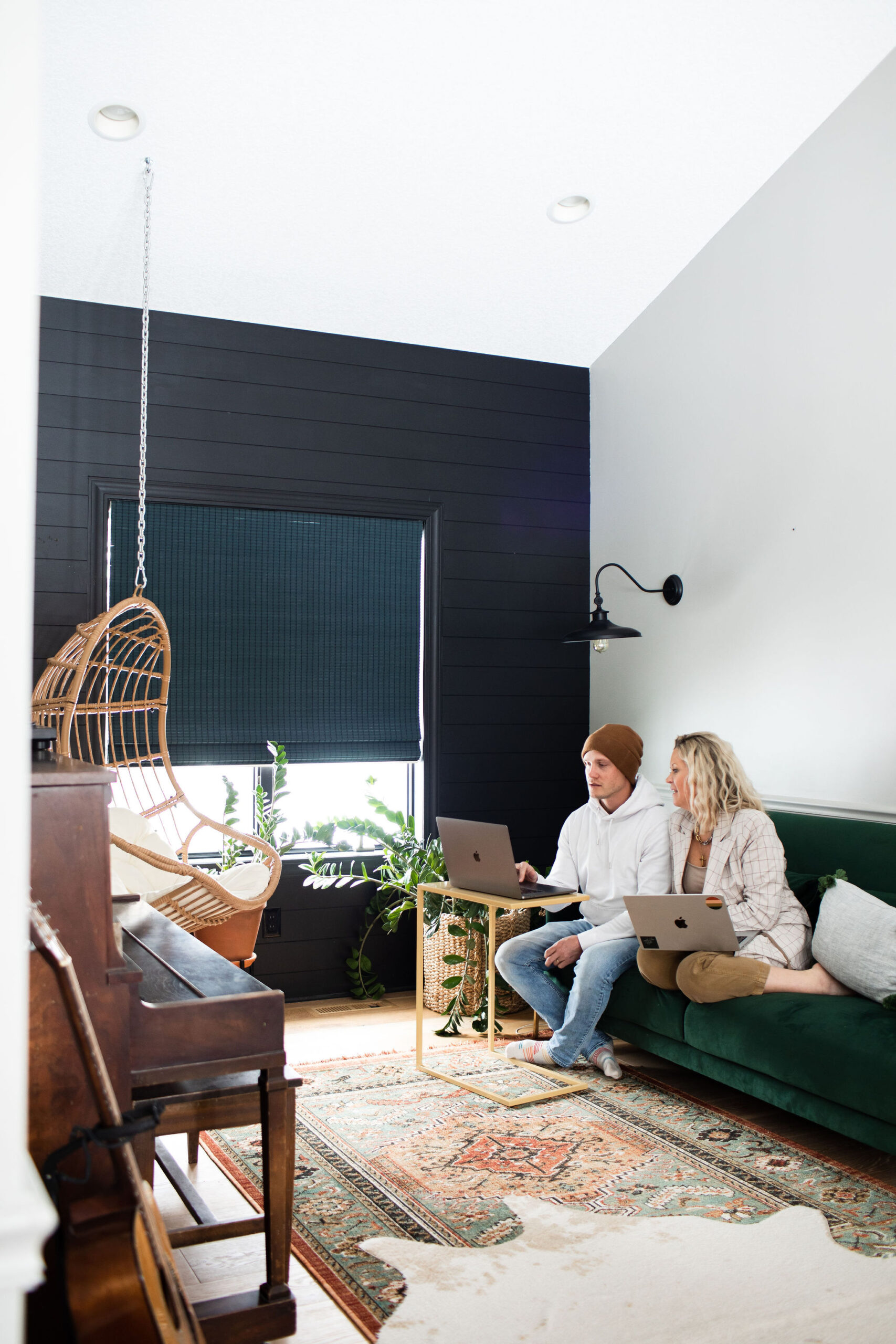

Feng Shui isn’t just a buzz word designers use to re-organize a room. It’s an ancient practice which focuses on how to configure things and places in a way that brings harmony into the environment. Feng Shui focuses on maintaining the flow of Chi Energy throughout a space, or your home. The flow of Chi energy will follow the natural flow of nature and can get blocked by things that hinder its natural flow. Bad Feng Shui can lead to unstable energy, bad relationship energy, and can basically decay and weaken your personal energy until it is recuperated. There are a couple of simple steps you can take on your own right now to ensure that flow of energy, and in turn, create better Feng Shui in your home.
Bedroom

Good energy in your bed and bedroom are key to get better sleep and improve your Chi energy. Having good feng shui in your bedroom promotes harmony with nourishing, not draining, energy. Some tips on how to create good feng shui in your bedroom are:
Nix the electronics. Having a TV, computer, or exercise equipment in your room completely take away from that room being used for rest and recuperation. These things can bring the stress of work into your room, emit high electromagnetic fields, and looking at blue light for extended periods of time can actually damage your retinas.
Purify the air. We spend all day breathing in dust and pollutants from the air. It’s important to refresh yourself at night in your bedroom. The last thing you want is to breathe in stale air when you have been all day. Get a high-quality air purifier for your bedroom that can help clean the air while you sleep, or before you go to sleep. Opening the windows often can help refresh that room – keep in mind plants in the bedroom are not good for feng shui unless they are located very far from your bed. An oil diffuser, with essential oils, can do wonders for purifying your air, and also oils like lavender can help you relax and are considered to have healing properties.
Position your bed appropriately. The bed is considered to be the MOST important piece of furniture when it comes to feng shui. In addition to comfortability, a well-balanced, good-looking bed is very important to creating that flow of harmonious energy in your bedroom. Your bed should be against a blank wall without a window or have a large headboard. Both sides should be easily accessible, and if you have room, have a bedside table on each side with warm, soft lighting. Lastly, do not have your bed directly in line with the door. If you lay on the bed, and your feet line up directly with the door, it’s said that your energy will be pulled out and you will be drained of your good chi by morning. To combat this, reposition your bed, or have a high footboard to keep that energy contained to your feng shui bed.
Minimize decor. Keep decor to a minimum. Mirrors are said to be disruptive to the flow of energy as it can bounce around the room, disturbing your sleep. Also, the third reflection, tradition claims, invites another person or energy into your personal life or relationship, which can diminish that important chi energy between yourself and your partner. Large colorful paintings, under the bed clutter, sharp edges, unused chairs, and the like should be left out of the bedroom. Keep decor minimal, with soft edges and light, natural-toned color schemes.
Front Entrance
The front door of your home is where energy comes in and so it should be welcoming, and unthreatening. Keeping an open, unobstructed entrance to your home can help the flow of Chi Energy right off the bat. Things like sharp-edged tables or mirrors facing the front door are not welcoming and create bad energy. Having symmetrical plants or round tables around the interior or exterior of your door is great, as well as having a door that opens into your home rather than out. Give your front door some love! Make sure it doesn’t squeak, it’s clean of dirt and fingerprints, and paint it a fun, welcoming color. Things like shoe and coat racks should be out of the way, and not obstructing of people or energy entering your home. Keep it clean, clear, and homey.
De-Clutter

Nothing blocks energy in your home more than clutter. De-cluttering is something we like to avoid as it’s time-consuming, overwhelming, and sometimes an emotional process when it comes to letting go of things we keep for whatever reason it may be. Removing clutter in your home is going to make a clear path for energy, and will bring you clarity, higher energy levels, and likely improve your overall well-being! The rules of Feng Shui are a great guideline to help de-clutter an area of your home. If the entire house seems daunting, simply focus on the two areas we already talked about, your bedroom and main entry, but also the kitchen as that is directly correlated to your health.
Kitchen. Basic cleaning like going through your refrigerator, taking out the trash, and surface cleaning, obviously help improve your mood but cleaning smarter can truly help improve the Chi in your home. When you clean your refrigerator, besides just tossing old food or leftovers, organize the fridge in a smarter way. Do you really need all those condiments filling the door? Are you using containers that easily stack to make more room in your fridge? Are you finding yourself wasting fruits and vegetables because they go bad too quickly? Rethink how you shop for and store food so you can maintain that clean refrigerator all the time.
Spend a day going through all your cupboards and if you have too much of one thing, think of donating it! A family of four maybe doesn’t need 12 plates on the shelf, or 20 random cups in the cupboard. Donate ones you don’t need, and store the rest for when you have company. Keeping your cabinets free from clutter, and only holding what you need makes navigating the kitchen easier, and helps the flow of energy go through without being blocked. Lastly, tossing out harsh chemicals, and replacing them with all-natural is not only good for the environment but good for your overall health and well-being. Make the switch!
Main Entry. Only keep items that are used, and needed in your front entry. In the winter you don’t need to keep your umbrellas or summer hats in the main entry. Store those seasonal items and only take them out when you need them! Dead plants or chipped pots should be replaced or moved away from the interior and exterior of your main entry. We all have the dreaded pile of mail that stares at us, waiting for us to go through it. Now, if you don’t get the time to go through it when you get home, install a little mail slot inside your front closet to put it until you can! It’s a convenient place to put it out of sight and off your floor, shoe bench, or dining room table. Maintain a sense of beauty and welcomeness in your entry with fresh flowers, simple decor, and some nice smelling essential oils.
Bedroom. Remove under the bed clutter! If under the bed is your only storage option, get some nice under bed storage at Target or IKEA that you can nicely place clothes or other items in, which will alleviate clutter, but you can also know exactly where everything is in organized bins. Go through your closet. Similar to de-cluttering your kitchen, if you go through your closet and find duplicates, things you haven’t worn in a year, or shoes that give you blisters – donate them! Keep your wardrobe simple, seasonal, and organized. Some people even like to color-code their wardrobe, which seems like a lot of work, but you will have the most Feng Shui closet on the block!
Our passion at Construction2Style is to make you feel at home. We hope these tips help you on your journey to bringing good Feng Shui into your home. Check out our shop for Feng Shui friendly decor, and more!




One thought on “Feng Shui: What Does it Mean & How Can I Create it at Home?”
Comments are closed.